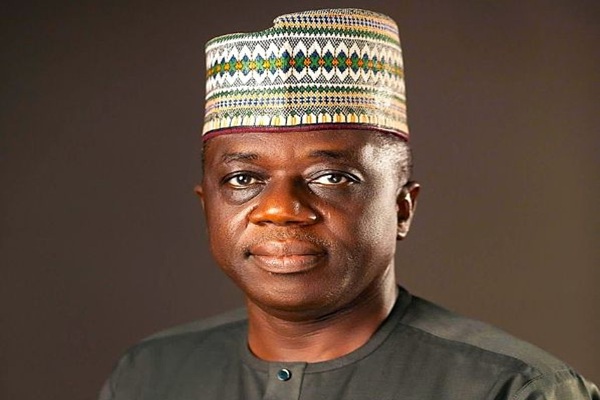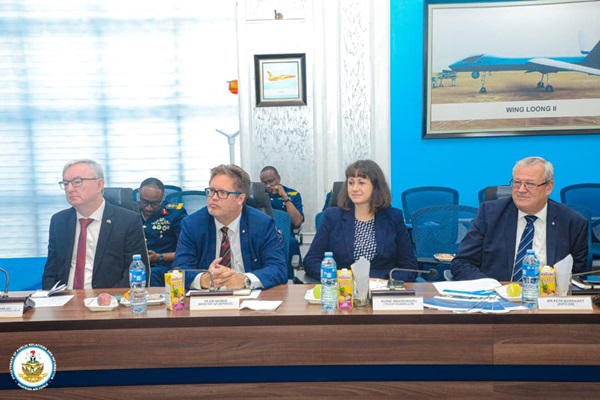
…pushes digital reform for donor-funded projects
The federal government has cautioned project coordinators across Nigeria that borrowed public funds must be deployed prudently to deliver tangible value to citizens.
Accountant-General of the Federation (AGF), Shamseldeen Babatunde Ogunjimi, gave the charge on Wednesday in Abuja at the maiden retreat his Office organised for donor-funded project coordinators.
Ogunjimi, represented by a Director in his office, Joshua Luka, charged managers of these donor-funded projects to uphold transparency, accountability, and efficiency in financial stewardship.
“This retreat is a testament to our commitment to enhancing the financial management of federal projects. We have been entrusted with not just public funds, but borrowed public funds which must be repaid in time, either in our generation or that of our children,” Ogunjimi said.
The retreat, which brought together coordinators of over 50 donor-funded federal projects, was designed to provide a platform for knowledge exchange and to introduce new reforms in Nigeria’s public financial management system.
According to the AGF, the discussions centred on accountability frameworks, the role of internal audits, and coordination with the Office of the Auditor-General of the Federation. A major feature of the gathering was the unveiling of a proposed digital interface aimed at unifying and integrating the accounting and reporting systems of federal projects.
Ogunjimi explained that the digital platform would allow for real-time online reporting to stakeholders, thereby strengthening transparency and simplifying monitoring processes. He disclosed that discussions were ongoing with partners, including the Islamic Development Bank (IsDB), to support the system’s implementation.
“You have been chosen among many Nigerians to manage borrowed funds as represented by over 50 donor-funded projects. It is therefore a privilege and a responsibility that must be carried out with integrity, sincerity of purpose, and strict adherence to global best practices,” the AGF noted.
Ogunjimi encouraged participants to use the platform for networking and collaboration. He said their cooperation would be critical to achieving Project Development Objectives (PDOs) and driving inclusive growth.
He also introduced the newly appointed Director of the Federal Projects Financial Management Department (FPFMD), who recently secured a “No Objection” from the World Bank. The AGF expressed confidence that the new leadership would bring innovative approaches to improve project financial management across the country.
Reiterating his office’s commitment to reforms, Ogunjimi stated that Nigeria’s fiscal environment now demands greater accountability and discipline in managing public resources. “Let us be guided by our shared vision of strengthening the financial stewardship of our nation’s resources for the benefit of the citizenry. Our projects must not just meet donor expectations but must also deliver real impact on Nigerians,” he said.
The World Bank also weighed in on the ongoing reforms. Its senior financial management specialist, Mr. Akram Elshorbagi, urged coordinators to carefully study the proposed digital system to ensure proper execution of government programmes, particularly social safety nets. According to him, “the programmes won’t make the right impact if they are not properly executed.”
Project coordinators used the retreat to call for a rethinking of poverty alleviation interventions. National Coordinator of the National Cash Transfer Office, Abdullahi Alhasan Immam, stressed that the government’s conditional cash transfer scheme must be designed to sustainably empower beneficiaries. “It should be used to empower the poor and vulnerable Nigerians, not just as a cash gift programme that cannot lift people out of poverty,” he said.
Similarly, the National Coordinator of NG-CARES, Karim Obaje, expressed concern that despite the numerous interventions, including those supported by the World Bank, poverty and hunger remain widespread in Nigeria.
He called for introspection and a reassessment of current strategies to improve outcomes.
The retreat is expected to produce a roadmap for strengthening project financial oversight, accelerating reforms, and deepening collaboration between donor agencies, the federal government, and project coordinators in line with Nigeria’s development priorities.



